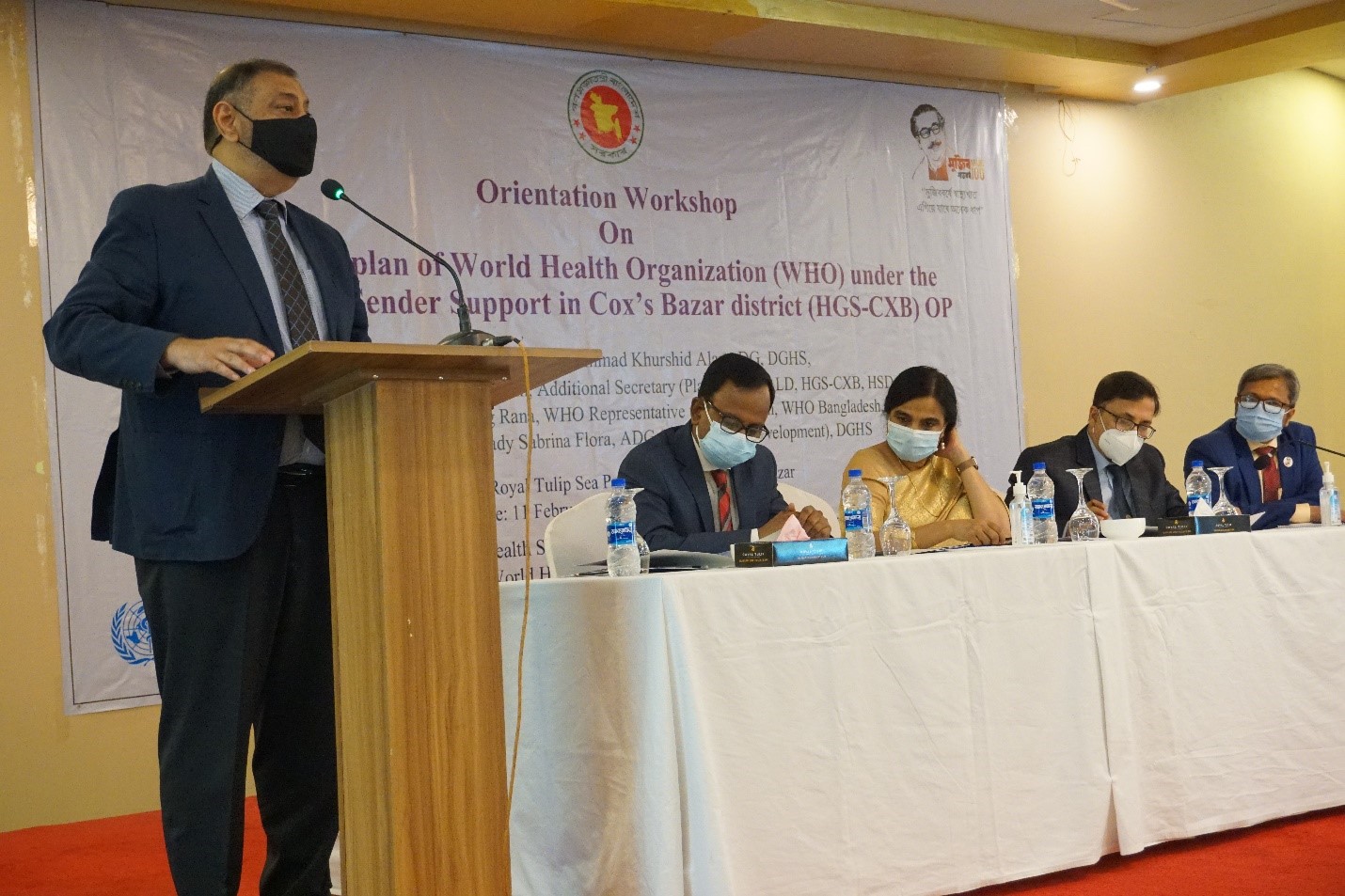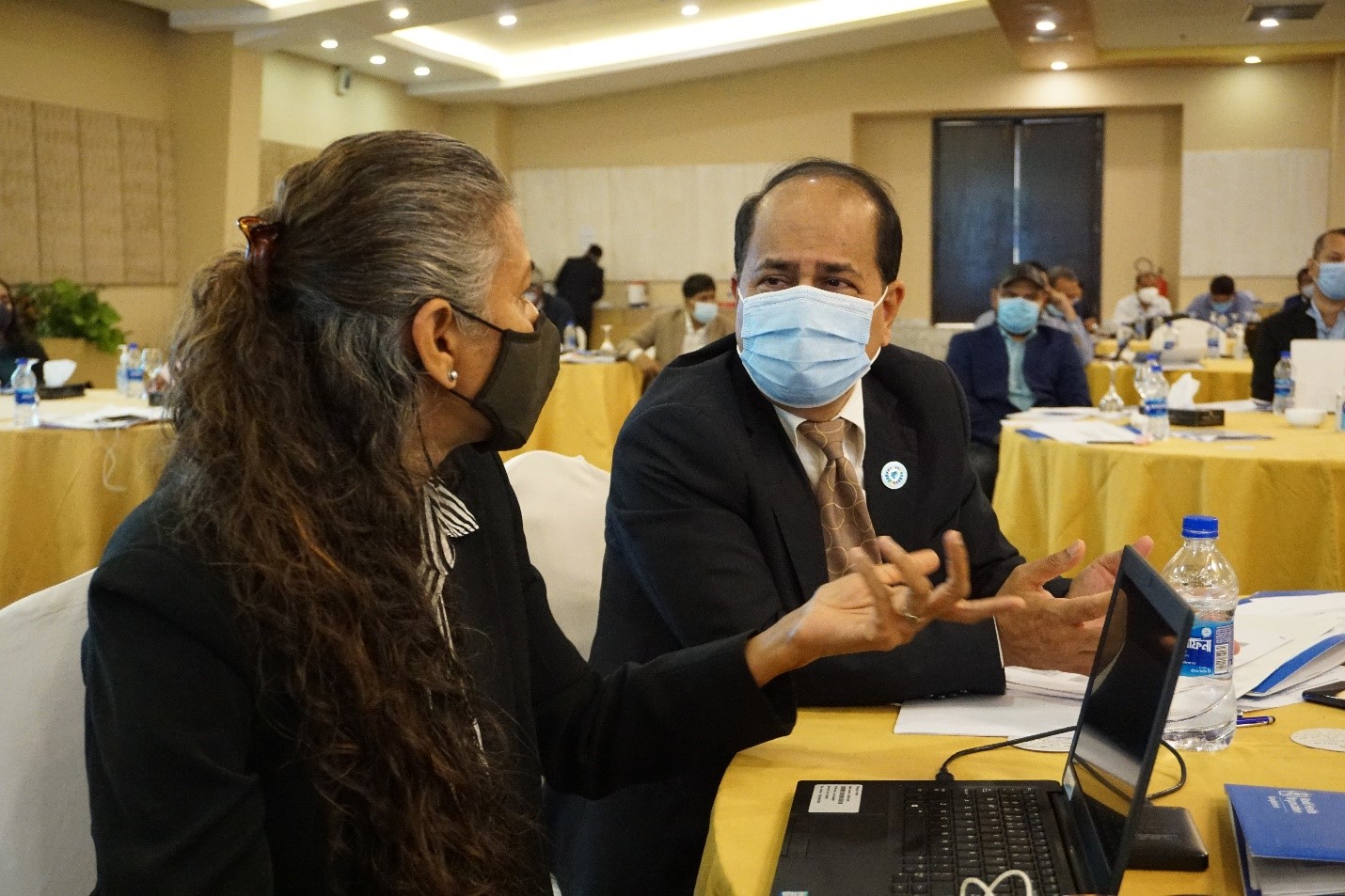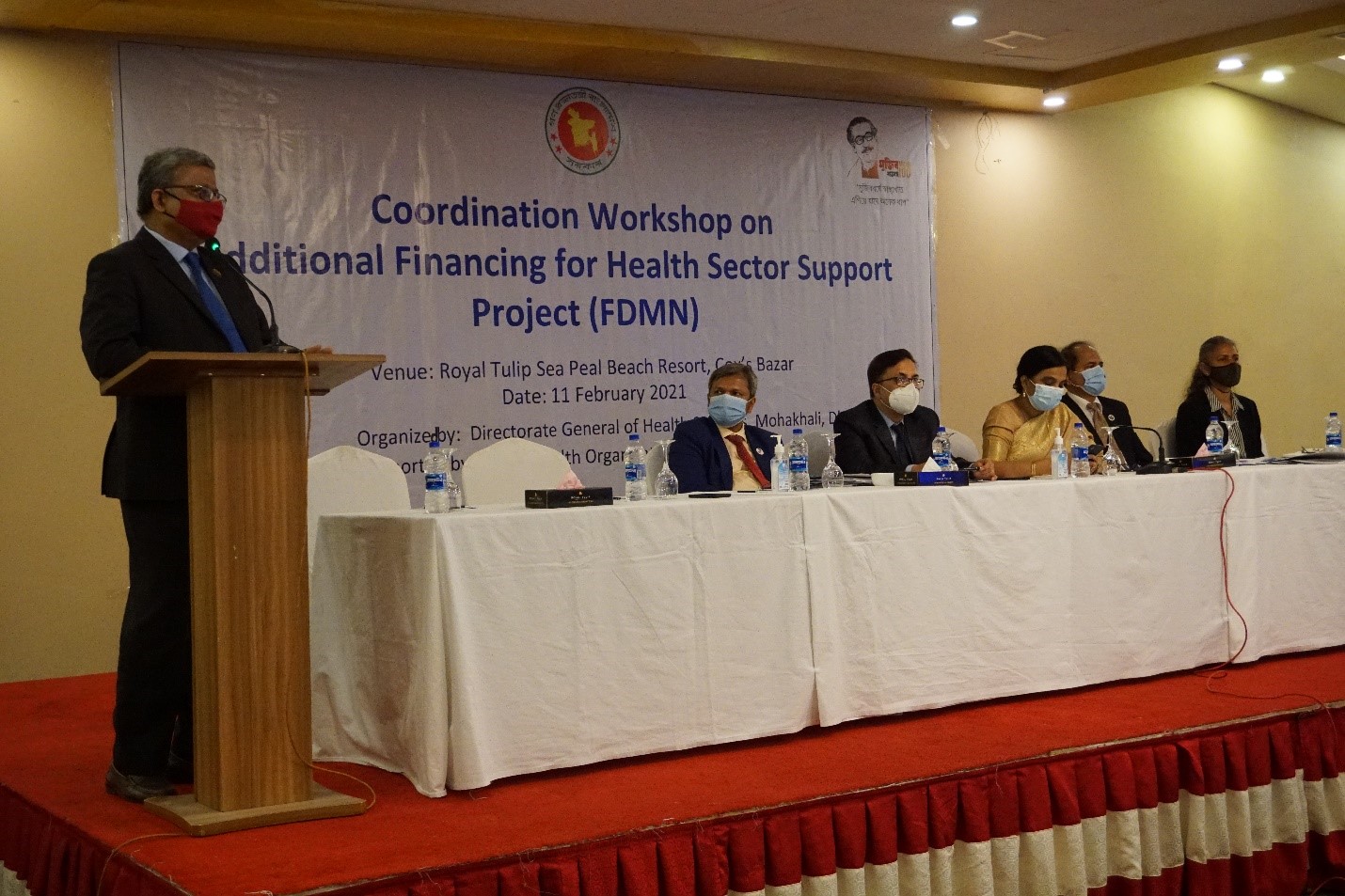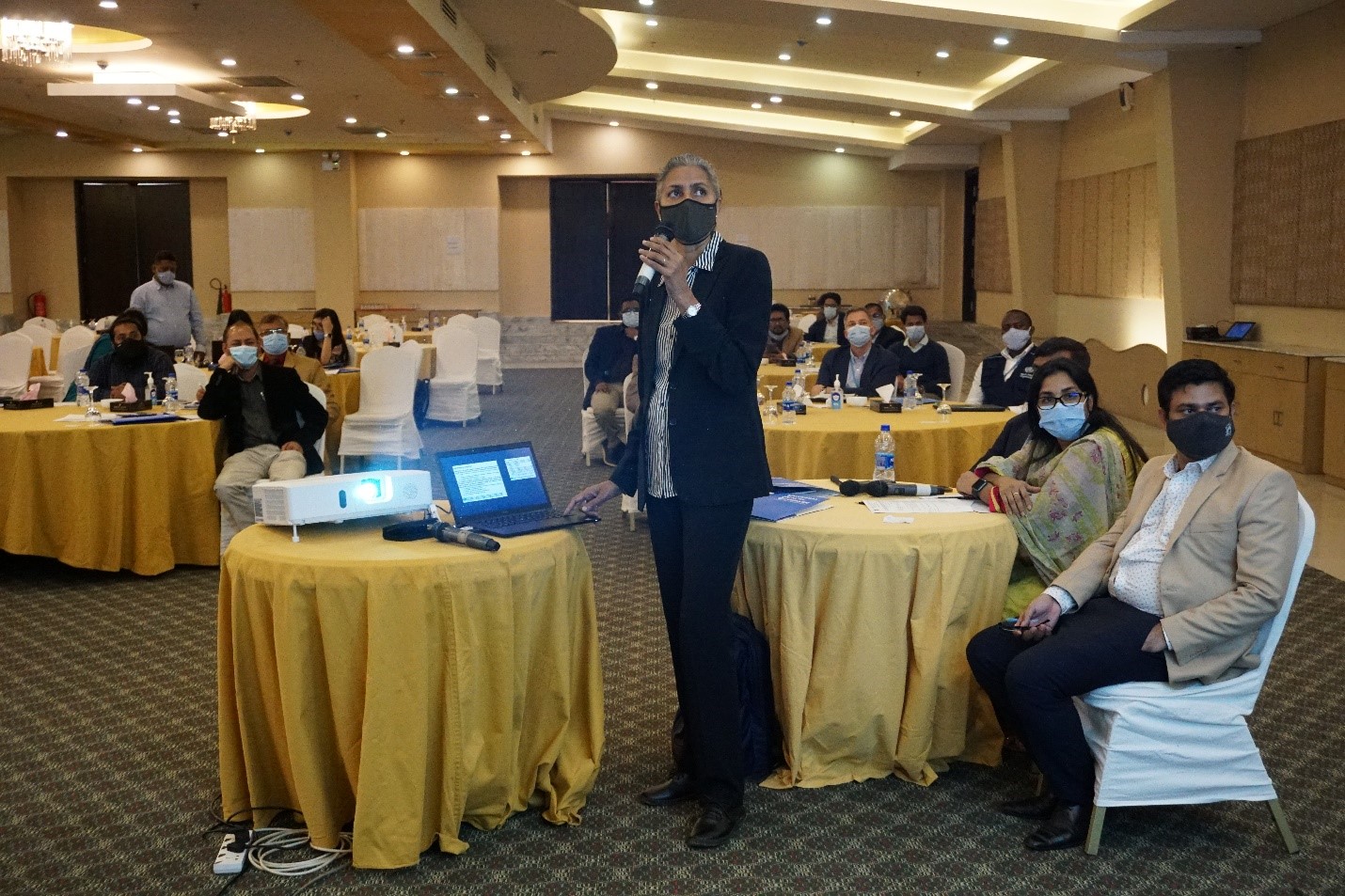Over the past decades the World Health Organization (WHO) backed the Government of Bangladesh (GoB) in furthering sustained health policies and strategies with sound technical advice and support toward the achievement of significant public health progress which has notably enhanced health and well-being amongst its population of over 160 million.
Meanwhile, in August 2017, the influx of some 671 000 Rohingya refugees fleeing from violence in the Rakhine State of Myanmar in what is to this day the biggest movement of refugees into Cox’s Bazar, the country’s southernmost district, lead to the onset of a humanitarian crisis followed by the establishment of the largest refugee camp in the world.
Together with the Government of Bangladesh, WHO and humanitarian partners are striving to meet the health needs of both Rohingya people and nearby host communities in an effort that has been made possible thanks to the funding support from the Government of Bangladesh/World Bank. The Government of Bangladesh/World Bank Funded Health and Gender Support Project (HGSP) will address health gaps in FDMNs and host communities in Cox’s Bazar.
 WHO Representative, Dr Bardan Jung Rana, at the orientation workshop to discuss WHO’s work plan under the Health and Gender Support Project (HGSP) which took place in February, in Cox’s Bazar - WHO Bangladesh
WHO Representative, Dr Bardan Jung Rana, at the orientation workshop to discuss WHO’s work plan under the Health and Gender Support Project (HGSP) which took place in February, in Cox’s Bazar - WHO Bangladesh
In addition to the ongoing project, the Government of Bangladesh/World Bank has just funded a new Health and Gender Support Project (HGSP) with $18.7 million to build on the achievements of the current Additional Financing for Health Sector Support Project while strengthening the essential health service package for Non-communicable diseases particularly hypertension and diabetes; Tuberculosis (TB) diagnostic capacities through provision of mobile vans; laboratory and safe blood transfusion; and support the implementation of the health care waste management plan and early warning mechanisms for disease outbreaks.
On 11 February 2021, the Ministry of Health and Family Welfare (Planning Wing) conducted a workshop to launch the “Health and Gender Support Project (HGSP)”, the Government of Bangladesh/World Bank funded initiative. The workshop was chaired by the Additional Secretary (Planning Wing) Director General of Health Services, Prof. Dr. Abul Bashar Mohammad Khurshid Alam.
 Joint Secretary (Planning), Medical Education and Family Welfare Division (MoHFW), Mr Mohammad Abdus Salam Khan, with WHO Deputy Representative, Dr Bhupinder Kaur Aulakh (left) at the orientation workshop of the new Health and Gender Support Project (HGSP) - WHO Bangladesh
Joint Secretary (Planning), Medical Education and Family Welfare Division (MoHFW), Mr Mohammad Abdus Salam Khan, with WHO Deputy Representative, Dr Bhupinder Kaur Aulakh (left) at the orientation workshop of the new Health and Gender Support Project (HGSP) - WHO Bangladesh
“I have been in the camps and the nearby host community in Teknaf Upazila during my visit where I was able to witness the tremendous efforts employed by all UN agencies and partners implementing the Additional Financing for Health Systems Support Project. With the dedication of the health care workers, the trainings provided, tools and information education and communication materials availed, the joint work with the UHFPOs and all beneficiaries to improve health seeking behavior for health services including for family planning services, I am certain the implementation of this new phase will be smooth”, says Joint Secretary (Planning), Medical Education and Family Welfare Division (MoHFW), Mr Mohammad Abdus Salam Khan.
 Additional Secretary Planning, Health Service Division, MoHFW, S, Mr. Md. Helal Uddin, leading the workshop which took place in Cox’s Bazar in February - WHO Bangladesh
Additional Secretary Planning, Health Service Division, MoHFW, S, Mr. Md. Helal Uddin, leading the workshop which took place in Cox’s Bazar in February - WHO Bangladesh
“The project’s relevance has been enhanced by the need to prepare and respond to the COVID-19 pandemic, and our mission to prevent excess mortality among Forcibly Displaced Myanmar Nationals (FDMNs) and nearby host community has been exacerbated. With the support of all partners involved, we have been implementing initiatives which are in line with national and global preparedness and response plans and which need to be revised at this moment in time to improve coordination. That way we will be able to address any challenge that partners on the ground are experiencing”, explains the Additional Secretary Planning, Health Service Division, MoHFW Mr. Md. Helal Uddin.
At the occasion, the Deputy Representative of WHO, Dr Bhupinder Kaur Aulakh presented the WHO action-plan to implement the project followed by meaningful discussions with government representatives and health partners in Cox’s Bazar.
“WHO is proud to continue collaborating in this cooperation project with the Government of Bangladesh which entails the promise of health for all in a district where vulnerable populations represent much needed health care services. While helping consolidate significant achievements to date, the Health and Gender Support Project will also address important issues such as gender-based violence in the district of Cox’s Bazar”, notes WHO Deputy Representative, Dr Bhupinder Kaur Aulakh.
 WHO Deputy Representative, Dr Bhupinder Kaur Aulakh, presenting WHO’s implementation plan during the workshop held in Cox’s Bazar - WHO Bangladesh
WHO Deputy Representative, Dr Bhupinder Kaur Aulakh, presenting WHO’s implementation plan during the workshop held in Cox’s Bazar - WHO Bangladesh
In its quest to achieve health for all, a more health-secure and sustainable country, the Government of Bangladesh and all partners involved, including WHO, are expecting to address the gap in health services through this Government of Bangladesh/World Bank project by June 2023.
